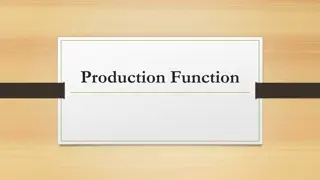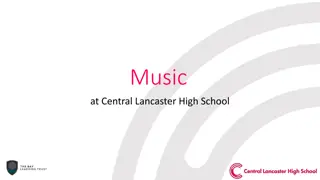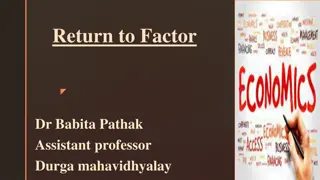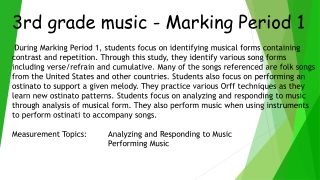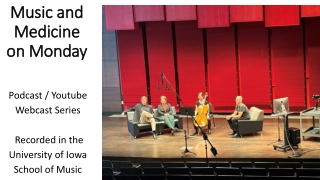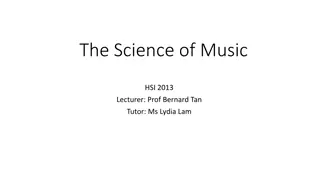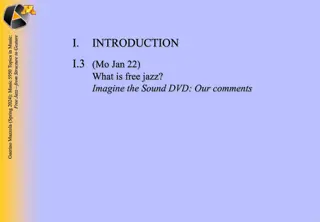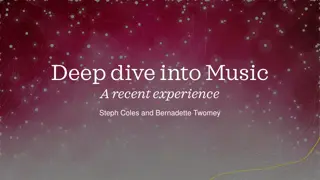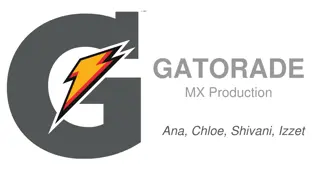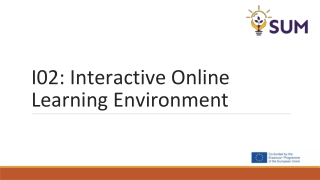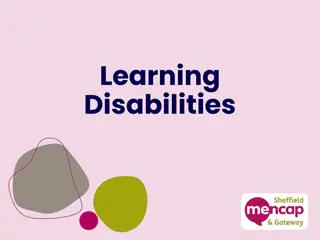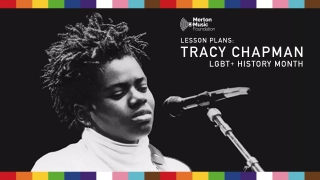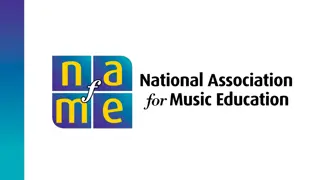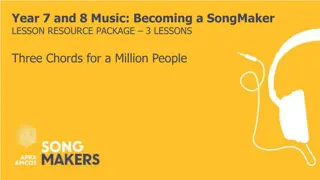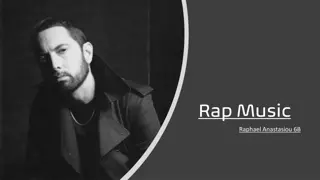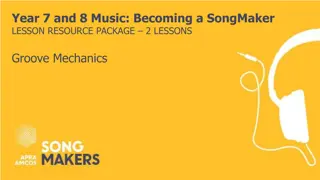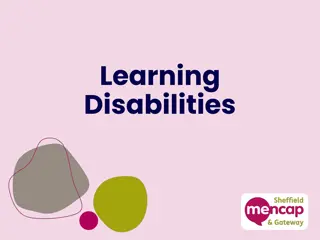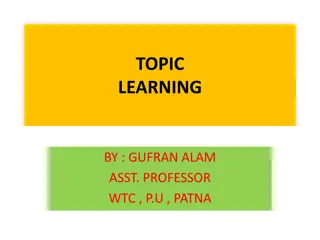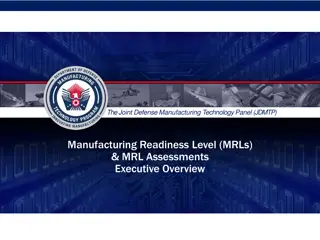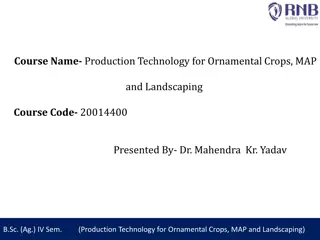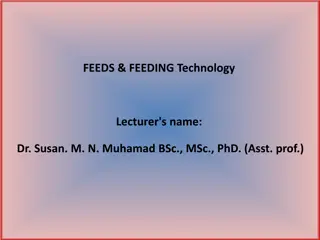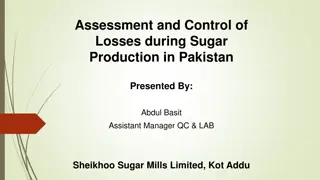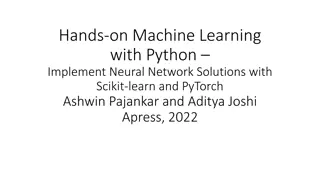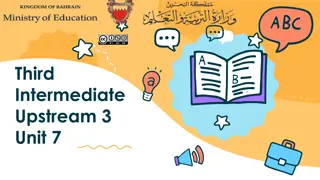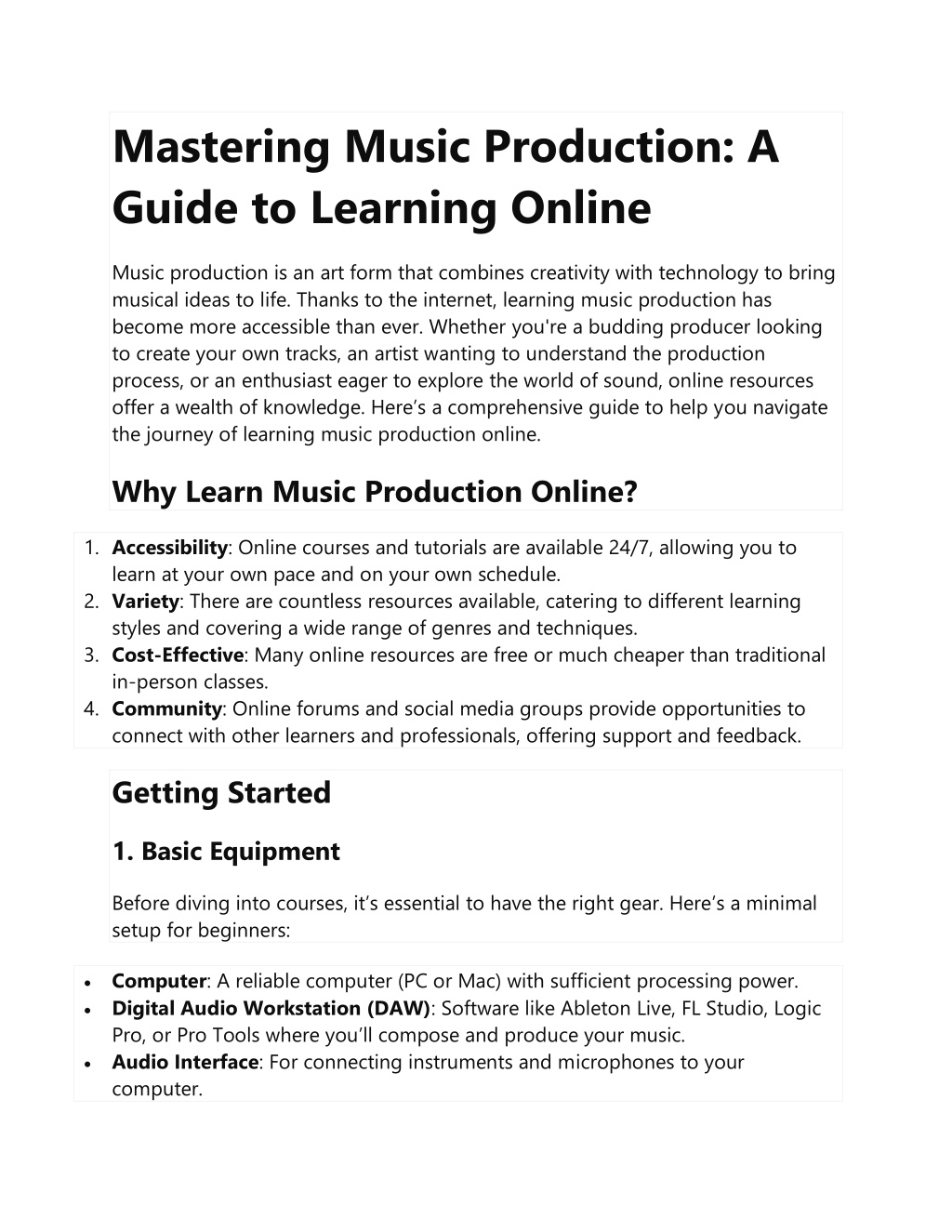
Mastering Music Production: A Guide to Learning Online
Music production is an art form that combines creativity with technology to bring musical ideas to life. Thanks to the internet, learning music production has become more accessible than ever. Whether you're a budding producer looking to create your own tracks, an artist wanting to understand the production process, or an enthusiast eager to explore the world of sound, online resources offer a wealth of knowledge. Hereu2019s a comprehensive guide to help you navigate the journey of learning music production online.
Download Presentation
Please find below an Image/Link to download the presentation.
The content on the website is provided AS IS for your information and personal use only. It may not be sold, licensed, or shared on other websites without obtaining consent from the author. Download presentation by click this link. If you encounter any issues during the download, it is possible that the publisher has removed the file from their server.
Presentation Transcript
Mastering Music Production: A Guide to Learning Online Music production is an art form that combines creativity with technology to bring musical ideas to life. Thanks to the internet, learning music production has become more accessible than ever. Whether you're a budding producer looking to create your own tracks, an artist wanting to understand the production process, or an enthusiast eager to explore the world of sound, online resources offer a wealth of knowledge. Here s a comprehensive guide to help you navigate the journey of learning music production online. Why Learn Music Production Online? 1.Accessibility: Online courses and tutorials are available 24/7, allowing you to learn at your own pace and on your own schedule. 2.Variety: There are countless resources available, catering to different learning styles and covering a wide range of genres and techniques. 3.Cost-Effective: Many online resources are free or much cheaper than traditional in-person classes. 4.Community: Online forums and social media groups provide opportunities to connect with other learners and professionals, offering support and feedback. Getting Started 1. Basic Equipment Before diving into courses, it s essential to have the right gear. Here s a minimal setup for beginners: Computer: A reliable computer (PC or Mac) with sufficient processing power. Digital Audio Workstation (DAW): Software like Ableton Live, FL Studio, Logic Pro, or Pro Tools where you ll compose and produce your music. Audio Interface: For connecting instruments and microphones to your computer.
Headphones or Studio Monitors: High-quality headphones or speakers to accurately hear your mixes. MIDI Keyboard: Optional, but useful for creating melodies and chords. 2. Free Resources There are numerous free resources to get you started: YouTube: Channels like Andrew Huang, Rick Beato, and Point Blank Music School offer tutorials on everything from basic DAW navigation to advanced mixing techniques. Blogs and Forums: Websites like Reddit s r/WeAreTheMusicMakers and Gearslutz are great for tips, reviews, and community advice. Free DAWs and Plugins: Programs like Cakewalk by BandLab and plugins from Spitfire Audio LABS provide quality tools at no cost. Structured Learning 1. Online Courses Investing in structured courses can accelerate your learning. Here are some popular platforms: Coursera and edX: Offer courses from renowned institutions like Berklee College of Music and Stanford University. Udemy: Affordable courses on specific topics such as mixing, mastering, and sound design. MasterClass: Features classes by industry legends like Timbaland and Deadmau5. 2. Dedicated Music Production Schools For a more comprehensive education, consider these specialized online schools: Point Blank Music School: Known for its extensive range of courses and industry connections. SAE Institute: Offers diplomas and degrees with a focus on practical skills and industry standards.
Pyramind: Provides mentorship and a robust curriculum that covers various aspects of music production. Practice and Application 1. Project-Based Learning Working on real projects is crucial. Here s how to apply what you ve learned: Remix Competitions: Websites like Splice and Metapop host competitions that provide stems and feedback. Collaborations: Join online communities to find other musicians to collaborate with. Personal Projects: Create your own tracks, experimenting with different genres and techniques. 2. Feedback and Improvement Constructive criticism is vital for growth. Share your work on platforms like SoundCloud, Bandcamp, or dedicated feedback groups on Reddit and Facebook. Advanced Learning 1. Specialized Courses and Tutorials Once you have a grasp on the basics, delve deeper into specific areas: Mixing and Mastering: Websites like PureMix and Mix With The Masters offer expert-level insights. Sound Design: Platforms like Syntorial and tutorials from synth manufacturers like Native Instruments can enhance your skills. 2. Music Theory and Composition Understanding music theory can significantly improve your production quality. Resources like Hooktheory and Musictheory.net provide interactive lessons.
Staying Updated Music production is a constantly evolving field. Stay informed by following industry news, joining forums, and subscribing to newsletters from sites like MusicTech and Sound On Sound. Conclusion Learning music production online is a rewarding journey that blends creativity with technical skill. With the plethora of resources available, anyone can start crafting their own music. Remember, consistency and practice are key. Dive in, explore different genres, experiment with new techniques, and most importantly, have fun creating music.

